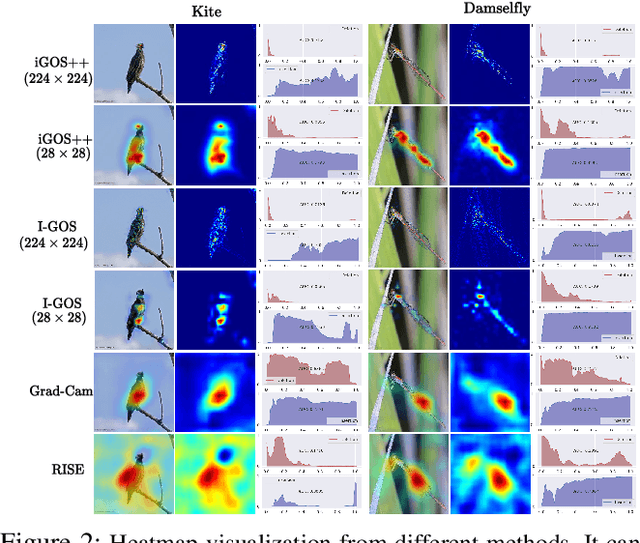iGOS++: Integrated Gradient Optimized Saliency by Bilateral Perturbations
Paper and Code
Dec 31, 2020



The black-box nature of the deep networks makes the explanation for "why" they make certain predictions extremely challenging. Saliency maps are one of the most widely-used local explanation tools to alleviate this problem. One of the primary approaches for generating saliency maps is by optimizing a mask over the input dimensions so that the output of the network is influenced the most by the masking. However, prior work only studies such influence by removing evidence from the input. In this paper, we present iGOS++, a framework to generate saliency maps that are optimized for altering the output of the black-box system by either removing or preserving only a small fraction of the input. Additionally, we propose to add a bilateral total variation term to the optimization that improves the continuity of the saliency map especially under high resolution and with thin object parts. The evaluation results from comparing iGOS++ against state-of-the-art saliency map methods show significant improvement in locating salient regions that are directly interpretable by humans. We utilized iGOS++ in the task of classifying COVID-19 cases from x-ray images and discovered that sometimes the CNN network is overfitted to the characters printed on the x-ray images when performing classification. Fixing this issue by data cleansing significantly improved the precision and recall of the classifier.
 Add to Chrome
Add to Chrome Add to Firefox
Add to Firefox Add to Edge
Add to Edge